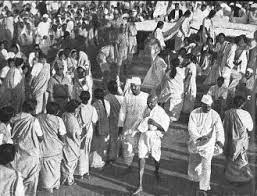The Karachi session 1931 of the Indian National Congress was a significant event in the Indian independence movement. It was held from March 29 to April 1 in Karachi, which was then a part of British India. The session marked a turning point in the Congress’s approach to the struggle for independence, and it set the stage for future developments in Indian politics.

The Karachi session was presided over by Sardar Vallabhbhai Patel, who later became the first Deputy Prime Minister of India. The session was attended by more than 2,000 delegates from all over India, including Mahatma Gandhi, who was then leading the civil disobedience movement against the British government.
One of the key outcomes of the Karachi session was the adoption of the resolution on fundamental rights and economic policy. This resolution outlined the Congress’s vision for an independent India, with emphasis on social justice and economic development. It called for the protection of civil liberties, such as freedom of speech and assembly, and it advocated for the establishment of a socialist economy.
The Karachi session also marked a significant shift in the Congress’s attitude towards the British government. In his presidential address, Sardar Patel declared that the Congress was no longer willing to cooperate with the British government on the basis of the Government of India Act 1935, which had been passed by the British Parliament earlier that year. Instead, Patel called for a mass civil disobedience movement to demand complete independence from British rule.
The resolution on complete independence, also known as the Karachi Resolution, was adopted on the final day of the session. It called for the Congress to demand immediate independence from British rule and to launch a nationwide civil disobedience movement if the demand was not met by December 31, 1931. The resolution marked a significant departure from the Congress’s previous approach of seeking dominion status within the British Empire.
However, the delegates including Mahatma Gandhi faced the protest of youth for failing to save the life of Bhagat Singh, Rajguru, and Sukhdev.
Despite the ongoing protests, the Karachi session of the Congress was a landmark event in the Indian independence movement. It set the stage for future developments, including the launch of the Quit India movement in 1942 and the eventual attainment of independence in 1947. The session also demonstrated the Congress’s commitment to social justice and economic development, which remain important values in modern India.
Important Links